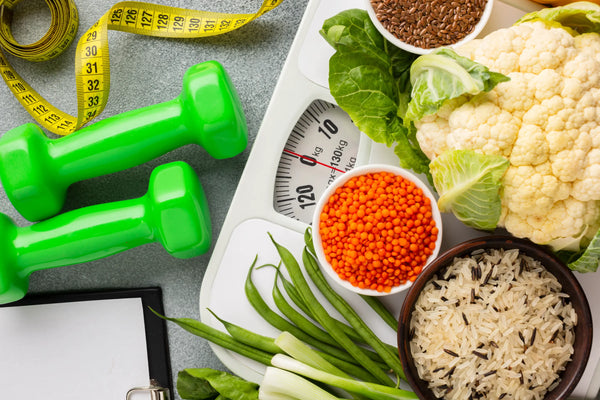- Quick-action methods such as staying hydrated and applying ice can provide immediate relief from gout pain.
-
Over-the-counter medications like NSAIDs can be effective for rapid pain relief, but be mindful of their correct usage.
-
Prescription medications may be necessary for severe gout pain or when OTC options are insufficient.
-
Non-pharmacological approaches and dietary supplements offer natural ways to manage and reduce the risk of gout attacks.
-
Understanding and avoiding gout triggers, including certain foods and stress, are crucial steps in preventing future attacks.

Quick-Action Methods to Alleviate Gout Pain
When gout pain flares up, acting fast can significantly reduce the duration and intensity of the pain. Here are some immediate steps you can take:1
-
Ice Therapy: Applying an ice pack to the affected joint for 20-minute intervals can help reduce inflammation and numb the area, offering temporary relief.
-
Rest and Elevate: Keep the affected joint elevated above the level of your heart to decrease swelling and pain. Resting helps in reducing the stress on the affected joint.
-
Hydration: Drinking plenty of water aids in flushing uric acid out of your body, potentially shortening the gout attack duration.2
-
Protection: Guard the affected joint against pressure and anything that might touch it to reduce pain. Using cushions or pillows to isolate the joint can be helpful.
Over-the-Counter Medications: What Works Fast?
For those seeking quick relief from gout pain, several over-the-counter (OTC) options can be considered. It's important to choose medications that won't conflict with existing health conditions:
-
NSAIDs: Medications like ibuprofen or naproxen can offer relief from pain and inflammation. It's crucial to follow the recommended dosages and be mindful of the potential for stomach upset or other side effects.3
-
Analgesics: Acetaminophen may help with pain management but does not address inflammation. It can be an option for those who cannot take NSAIDs.1
Remember, these OTC medications can provide immediate gout pain relief but are not suitable for everyone.
Always consult with a healthcare professional before starting any new medication, especially if you have existing health issues or are on other medications.

Advanced Solutions for Severe Gout Pain
When gout pain is severe and over-the-counter medications are not enough, you may need to explore more advanced treatment options:3
-
Colchicine: This prescription medication is effective at reducing gout pain and is often used when NSAIDs are contraindicated. Due to its potential side effects, such as gastrointestinal issues, it should be taken under the guidance of a healthcare provider.
-
Corticosteroids: For intense gout attacks or when other medications cannot be used, corticosteroids can be prescribed. They can be taken orally, injected directly into the affected joint, or administered intramuscularly for systemic relief.
When to Consider Prescription Medications?
Prescription medications become necessary under several key conditions:
-
Insufficient Relief from OTC Medications: When over-the-counter options fail to manage your gout symptoms.
-
Multiple or Frequent Gout Attacks: If you're experiencing frequent gout flare-ups.
-
Complications or Contraindications with NSAIDs or Colchicine: For individuals who cannot safely use these common treatments.
-
Evidence of Joint Damage or Chronic Gouty Arthritis: When there's visible joint damage or chronic arthritis due to gout.
-
Co-existing Health Conditions: If you have other health issues that complicate gout management.
-
Uric Acid Kidney Stones: For those who develop kidney stones from high uric acid levels.
In these cases, consulting with a healthcare provider is essential to tailor a treatment plan that addresses your specific needs.
Long-Term Management: Preventing Gout Flares
Managing gout over the long term focuses on preventing future attacks and minimizing the risk of complications. Here are strategies to help achieve this:4
-
Uric Acid Monitoring: Regularly checking your uric acid levels helps in adjusting your treatment plan to keep levels within a normal range.
-
Medication Adherence: If prescribed urate-lowering therapy, sticking to your medication schedule is crucial for keeping uric acid levels in check.
-
Lifestyle Modifications: Changes such as reducing the intake of high-purine foods, limiting alcohol consumption, and maintaining a healthy weight can significantly impact uric acid levels.
-
Adequate Hydration: Drinking plenty of water throughout the day helps in reducing uric acid concentration and promotes its excretion.
Incorporating these strategies into your daily routine can greatly reduce the frequency and severity of gout attacks, leading to a better quality of life.
Regular follow-ups with your healthcare provider are important to monitor progress and make necessary adjustments to your gout management plan.

Non-Pharmacological Relief for Gout Pain
Enhancing lifestyle and physical activity can significantly contribute to managing gout pain without relying solely on medications:[1, 2
-
Weight Management: Achieving and maintaining a healthy weight reduces stress on the joints, potentially decreasing the frequency and intensity of gout attacks.
-
Hydration: Drinking plenty of fluids, especially water, can help dilute uric acid in the blood, facilitating its elimination through urine.
-
Physical Activity: Engaging in low-impact exercises, such as swimming or walking, can improve joint flexibility and overall health without exacerbating gout symptoms.
-
Rest and Elevation: During a gout attack, resting and elevating the affected joint can reduce swelling and relieve discomfort.
-
Cold Therapy: Applying ice packs to the affected area for 20-30 minutes several times a day can help reduce inflammation and alleviate pain.
Dietary Supplements: Natural and Effective
Incorporating certain supplements into your diet may aid in controlling gout symptoms and uric acid levels:
-
Tart Cherry Juice and Extracts: Known for their anti-inflammatory properties and potential to reduce uric acid levels, making them a popular choice for gout sufferers.5
-
Fish Oil Supplements: Rich in Omega-3 fatty acids, these supplements can decrease joint inflammation and pain associated with gout.6
-
Vitamin C: While not a direct treatment for gout, modest supplementation can assist in lowering uric acid levels slightly, contributing to overall management.7
-
Folic Acid: Some studies suggest that folic acid may help in lowering uric acid, although more research is needed.8
Can Topical Treatments Help?
Topical treatments, including creams and gels containing anti-inflammatory compounds, can offer localized relief from gout pain.
Ingredients like capsaicin, found in chili peppers, may help reduce pain sensation when applied to the skin over the affected joint.
While these treatments do not address the underlying cause of gout, they can provide temporary relief from discomfort.

Home Remedies: Safe and Accessible Options
Several easily accessible home remedies can offer relief and contribute to gout management:
-
Elevate and Rest: Keeping the affected limb elevated helps reduce blood flow to the area, potentially diminishing swelling and pain.
-
Dietary Adjustments: Focusing on a diet rich in fruits, vegetables, whole grains, and low-fat dairy can help manage uric acid levels. Avoiding foods high in purines is crucial.
-
Ice Packs: Regular application of ice can decrease inflammation, providing temporary relief from gout pain.
Understanding Gout Triggers: What to Avoid
Recognizing and avoiding triggers is key to preventing gout flare-ups.3, 4
-
Alcoholic Beverages and Sugary Drinks: These can significantly increase uric acid levels, triggering gout attacks.
-
High-Purine Foods: Foods like red meat, certain seafood, and organ meats are high in purines and can exacerbate gout symptoms.
-
Stress Management: High stress levels may trigger gout attacks, making stress management techniques essential.
-
Rapid Weight Loss: Although maintaining a healthy weight is beneficial, rapid weight loss can temporarily increase uric acid levels, potentially triggering an attack.
Keeping a food and symptom diary can help identify personal triggers, enabling better management of the condition.
Frequently Asked Questions
-
What can I do for immediate gout pain relief?
-
For immediate relief from gout pain, consider over-the-counter medications like NSAIDs, cold compresses, and ensure adequate hydration.
-
-
Are there any effective home remedies for gout?
-
Yes, home remedies like drinking tart cherry juice, applying ice packs, and maintaining a low-purine diet can help manage gout symptoms.
-
-
Can dietary supplements reduce the frequency of gout attacks?
-
Supplements such as tart cherry extract, fish oil, and vitamin C have shown potential in reducing uric acid levels and gout attack frequency.
-
-
What lifestyle changes can prevent gout flare-ups?
-
Preventing gout flare-ups involves staying hydrated, avoiding high-purine foods and alcoholic beverages, and engaging in regular, low-impact exercise.
-
-
Is it safe to use topical treatments for gout pain?
-
Topical treatments like capsaicin creams may provide temporary pain relief for gout sufferers without significant side effects.
-
References:
-
Kakutani-Hatayama, M., Kadoya, M., Okazaki, H., Kurajoh, M., Shoji, T., Koyama, H., Tsutsumi, Z., Moriwaki, Y., Namba, M., & Yamamoto, T. (2015). Nonpharmacological Management of Gout and Hyperuricemia: Hints for Better Lifestyle. American journal of lifestyle medicine, 11(4), 321–329. https://doi.org/10.1177/1559827615601973
-
Fenando A, Rednam M, Gujarathi R, et al. Gout. [Updated 2022 Dec 27]. In: StatPearls [Internet]. Treasure Island (FL): StatPearls Publishing; 2024 Jan-. Available from: https://www.ncbi.nlm.nih.gov/books/NBK546606/
-
Ragab, G., Elshahaly, M., & Bardin, T. (2017). Gout: An old disease in new perspective - A review. Journal of advanced research, 8(5), 495–511. https://doi.org/10.1016/j.jare.2017.04.008
-
Lamb, K. L., Lynn, A., Russell, J., & Barker, M. E. (2020). Effect of tart cherry juice on risk of gout attacks: protocol for a randomised controlled trial. BMJ open, 10(3), e035108. https://doi.org/10.1136/bmjopen-2019-035108
-
Zhang, M., Zhang, Y., Terkeltaub, R., Chen, C., & Neogi, T. (2019). Effect of Dietary and Supplemental Omega-3 Polyunsaturated Fatty Acids on Risk of Recurrent Gout Flares. Arthritis & rheumatology (Hoboken, N.J.), 71(9), 1580–1586. https://doi.org/10.1002/art.40896
-
Juraschek, S. P., Gaziano, J. M., Glynn, R. J., Gomelskaya, N., Bubes, V. Y., Buring, J. E., Shmerling, R. H., & Sesso, H. D. (2022). Effects of vitamin C supplementation on gout risk: results from the Physicians' Health Study II trial. The American journal of clinical nutrition, 116(3), 812–819. https://doi.org/10.1093/ajcn/nqac140
-
Sun, X., Wen, J., Guan, B., Li, J., Luo, J., Li, J., Wei, M., & Qiu, H. (2022). Folic acid and zinc improve hyperuricemia by altering the gut microbiota of rats with high-purine diet-induced hyperuricemia. Frontiers in microbiology, 13, 907952. https://doi.org/10.3389/fmicb.2022.907952

